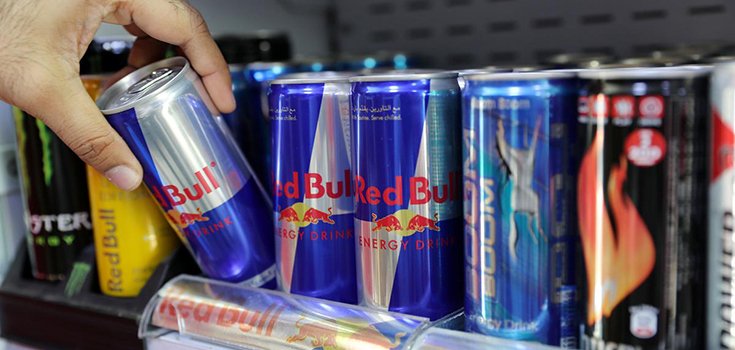Study Suggests Just 1 Energy Drink May Harm Blood Vessels

In recent years, health experts have been warning about the health consequences of consuming energy drinks, which contain a mixture of caffeine, sugar, and other herbal ingredients, due to the beverages’ effect on the heart. In a recent study, researchers found that consuming just 1 energy drink leads to blood vessel damage, which can point toward other health ailments.
Energy drinks like Monster and Red Bull have been linked to heart, nerve, and stomach problems, researchers say. And young people who use them to boost their athletic performance may be doing themselves more harm than good.
Lead researcher Dr. John Higgins, a professor of medicine at McGovern Medical School at the University of Texas Health Science Center in Houston, commented:
“A lot of young kids use energy drinks when they exercise, a time when you need your arterial function to be at its top.”
When you exercise, your body requires maximum blood flow in order for oxygen to get to cells quickly. But the study shows that energy drinks do just the opposite: They reduce the diameter of blood vessels, thus restricting blood flow and oxygen delivery.
Higgins said:
“It’s more work for the heart and less oxygen supply for the heart. This could explain why there have been cases where kids have had a cardiac arrest after an energy drink.”
Unlike people who slowly sip a hot cup of coffee, many energy drink users chug the beverages so they get the full effect immediately. Higgins said that might be a dangerous practice.
He also warned that people under 18, pregnant and breastfeeding women, caffeine-sensitive individuals, people taking stimulants or caffeine-based drugs, and those with heart disease ought to steer clear of energy drinks.
“These drinks are not intended for children.”

Energy Drinks’ Effects on the Young Cardiovascular System
For the study, researchers recruited 44 young, healthy medical students in their 20’s who didn’t habitually smoke. [2]
The participants’ endothelial (blood vessel) function was measured at baseline to establish how an energy drink would affect it.
Each volunteer consumed a 24 oz. energy drink, followed by another endothelial function test 90 minutes later.
At the 90-minute mark, the endothelial tests showed that the participants had poorer artery flow-mediated dilation than they had before drinking an energy drink.
The students’ artery flow-mediated dilation – an indicator of blood vessel health – was about 5.1% in diameter at baseline, on average. But after consuming the energy drink, that number shrank to about 2.8% in diameter, indicating acute impairment of blood vessel function.
The authors have a hunch that the participants’ impaired blood vessel function is a result of the combination of ingredients typically found in energy drinks, including caffeine, taurine, sugar, and herbal stimulants.
The researchers are still seeking to determine if it is safe to consume energy drinks and, if so, in what quantities.
Higgins said:
“As energy drinks are becoming more and more popular, it is important to study the effects of these drinks on those who frequently drink them and better determine what, if any, is a safe consumption pattern.”
The authors are set to present their findings on November 12 at a meeting of the American Heart Association, in Chicago.
Energy Drinks’ History of Health Complications
As Higgins pointed out, energy drinks have been linked to heart problems, among other things.
Last year, a study published in the Journal of the American Heart Association (JAMA) showed that energy drinks put an extra strain on the heart and cause it to contract more rapidly than usual. Eventually, this pattern can weaken the heart and cause palpitations.
That study followed one published in November 2015 which showed that consuming just 1 energy drink a day increases your risk of heart attack or stroke by causing harmful spikes in both blood pressure and the “fight or flight” hormone noradrenaline.
It also follows a March 2016 study showing that energy drinks increase the risk of hypertension and an abnormal heart rhythm, particularly in people with preexisting heart conditions.
If you’re looking for a way to shake off the cobwebs and wake up more easily in the morning, coffee or tea are far healthier choices than energy drinks. And if you don’t like either of those, try taking a walk, as this simple, healthy activity may even trump caffeine when it comes to getting a temporary energy boost.
You can also get your day started the natural, healthy way by juicing some organic produce or eating a nutrition-packed breakfast.
Sources:
[1] HealthDay
The National (featured image source)
